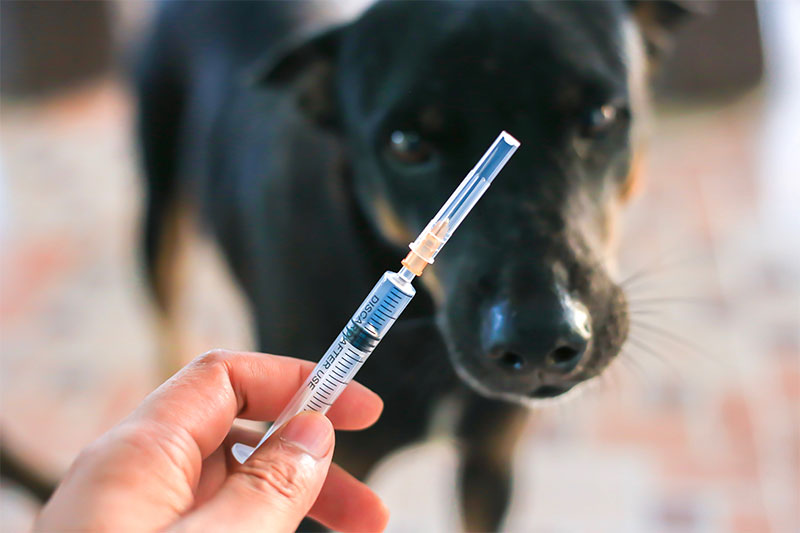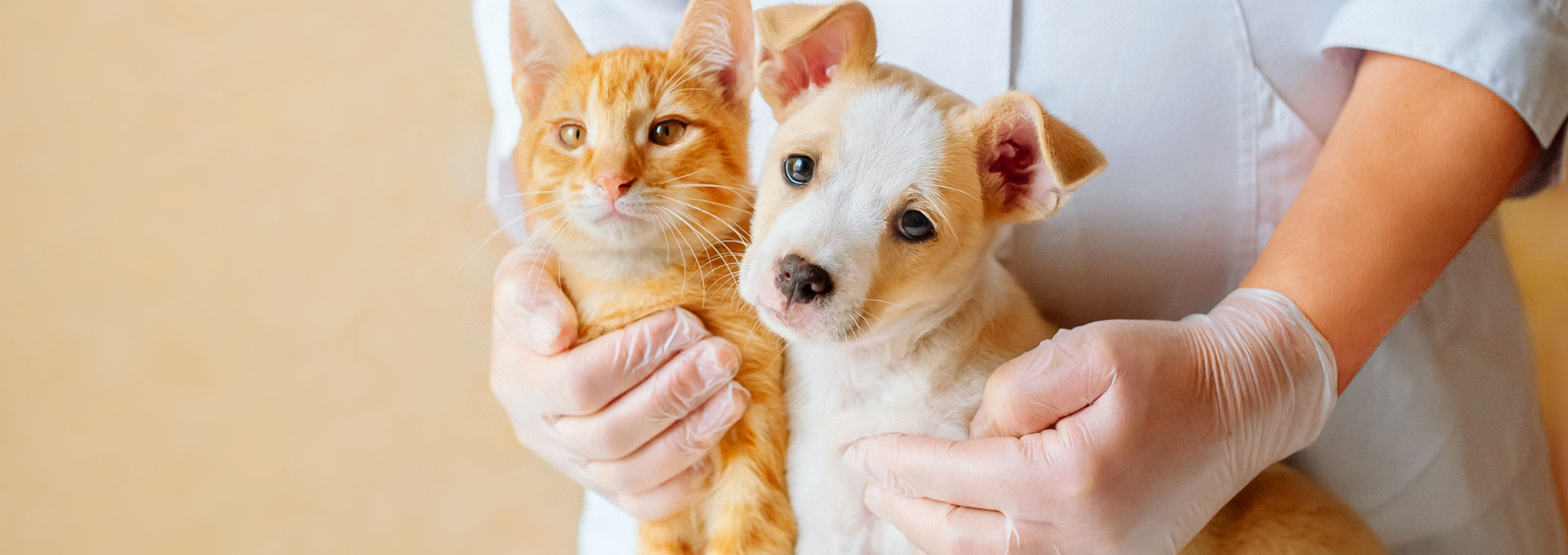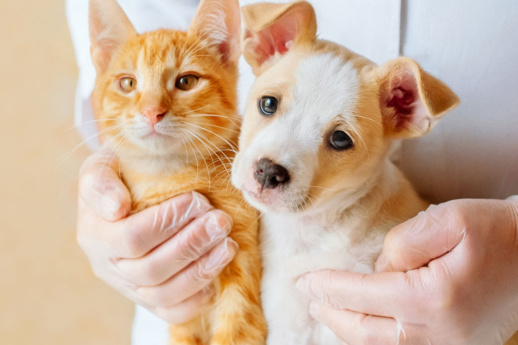
Why We Immunize Our Pets
Vaccines are one of the most important components of wellness and preventative care for both pets and people. Despite rumors that circulate about the “dangers” of vaccines, vaccinations are actually quite safe and incredibly effective at preventing both pets and people from falling victim to extremely dangerous diseases.
Top 5 Reasons Why We Vaccinate Our Pets
1. Vaccination Protects Pets From Dangerous Diseases
Vaccines are designed to protect pets from contracting highly dangerous and contagious diseases, such as rabies, distemper, feline leukemia, and more. Many of the diseases from which vaccines protect pets are difficult to treat and are often fatal.
2. Vaccinating Animals Saves Human Lives, Too
Many of the diseases that pet vaccines prevent are also zoonotic, meaning they can be transmitted from pets to people. Vaccinating your pets also protects your human family members.
For example, according to the [World Health Organization] , rabies is responsible for the deaths of about 59,000 people worldwide each year. Thanks to robust vaccine efforts that are backed by local laws, the United States rarely experiences rabies-related deaths as a result of unvaccinated domestic animals. Ninety-five percent of rabies-related deaths occur in Africa and Asia, and dogs are largely responsible for the spread to people in these places.
3. Vaccines Are Safe and Effective
Extreme reactions to vaccination are rare, and the risks associated with vaccinating pets are so minimal that the health benefits of vaccination far outweigh the risks
4. Prevention Is Always Less Expensive Than Treatment
As a general rule, preventative care is always less expensive than the cost of treating a disease that could have been avoided. Plus, in many cases, curative treatments aren’t even available for diseases that can be prevented with vaccines.
5. Preventative Care Saves Pets Pain and Suffering
No one wants to see their cat or dog suffering from an illness – especially one that could have been easily prevented with a simple schedule of vaccinations.
Schedule Your Pet's Annual Wellness and Preventative Care Appointment in Pensacola
At Olive Branch Pet Hospital in Pensacola, we provide pets with comprehensive wellness and preventative care with a variety of cost-saving wellness plans available, too. Our veterinarians will recommend a schedule of core (required/recommended for all pets) and non-core (recommended on a case-by-case basis) vaccines based on your pet’s individual lifestyle and exposure level to ensure your cat or dog stays safe and healthy.










